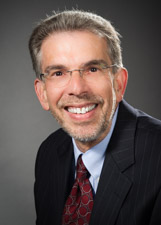Takeaway
A decision made in good faith with the best available information shouldn’t be regretted even if it’s later proven wrong. All we can do is learn from the experience to improve our care of patients.

Lifelong Learning in Clinical Excellence | September 11, 2020 | 3 min read
By Eric Last, DO, Northwell Health, Wantagh, New York
I’d missed the call. My cell phone was on my desk when it rang and I was with a patient. Returning to my office, I saw the name on the caller ID. A friend who is a patient—a patient who is a friend. He’d left a voicemail with a hoarse, struggling quality that could have been the soundtrack for a movie entitled “Dyspnea.”
“Please call me back,” he implored, each word, each breath, a battle. Then he hung up.
I’d seen him during the early days of COVID-19 in New York. He’d called to tell me he’d been coughing and febrile. He went to the ER for a COVID PCR nasal swab test that came back negative. But today, his symptoms were worse, with increased cough, fever, as well as shortness of breath and headache.
Because he hadn’t had a chest x-ray in the ER, I sent him for one. My plan was simple—if the chest x-ray was consistent with COVID, I’d send him to the hospital. But if the x-ray was consistent with “community acquired” pneumonia, I’d evaluate him in the office. After all, non-COVID pneumonia can make you feel awful. Further, we’d recently been advised that false negative COVID testing was exceedingly rare.
After the radiologist called and confirmed a right middle lobe infiltrate, I had my patient/friend come to the office. I was masked, gloved, and confident in the negative PCR result. He too was masked and obviously ill, with fever, cough, and headache—a bad headache. But his oxygen level was good and I knew I could follow him closely. He left the office, on his way to pick up the two antibiotics prescribed to treat his pneumonia. I told him I’d call the next morning with results of his blood tests and to follow up on his symptoms. He knew to call me overnight if anything got worse.
The next morning, I reviewed his lab results. They were concerning, with lymphopenia, which we’d come to appreciate could be associated with COVID. As planned, I dialed his number to discuss his labs and see if he was any better. But my call went unanswered. I dialed again, both his cell and home numbers. And still no answer. After seeing my first few patients, I called again, still with no response.
Then an ominous premonition crept into my awareness. I found his name in the computer system. He’d been admitted to the ICU with low oxygen levels, an awful looking CAT scan . . . and a positive COVID nasal swab.
Over the ensuing days he was treated aggressively, getting a bit better one day, and a lot worse the next. He called me two weeks after admission and left a message. He wasn’t doing well, was getting more fatigued, with worsening CT scan, and the likelihood of intubation looming larger with each blood gas analysis.
He answered my return call on the fourth ring. “I want to tell you I am so, so sorry,” he gasped, barely able to speak. “I should never have come in and exposed you and your staff and your family. Please tell me you’re ok.”
I was speechless. Not just at a loss for words, but unable to speak. Once I could, I reassured him that he had done nothing requiring an apology. That he needed to know that we all cared about him and that his energy should be focused on healing. We said goodbye, knowing that may have been our last conversation.
Thankfully, it wasn’t. He turned the corner, continued to improve, and eventually went home. We “saw each other” the next week via video. We proved that you can share tears and hugs virtually.
Making decisions is hard. We do it all day long. Some are quick, automatic, reflexive. Others require careful consideration and deliberation. With hindsight, some decisions turn out to be wrong. But if, after careful thought, a decision is made that you’re comfortable with, you can’t regret it. If it’s right at the time it was made, it’s right forever. And if the “hindsight-oscope” says you’ve erred, you should learn, but don’t regret.
It turned out the decision I made to see my patient/friend was flawed. But given the information I had at the time, it was the right decision to make.
And I’ll never regret it.

